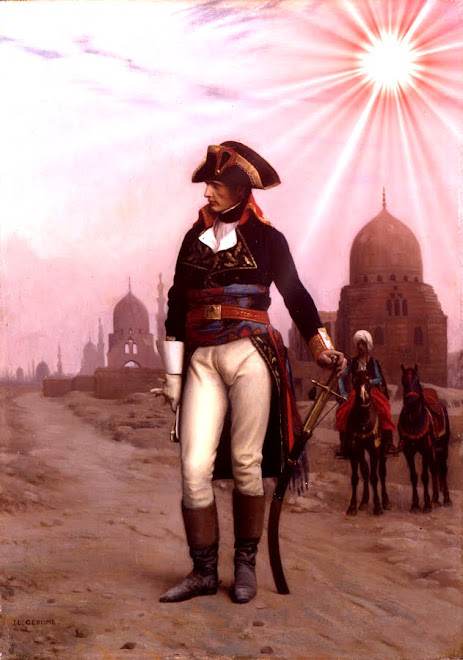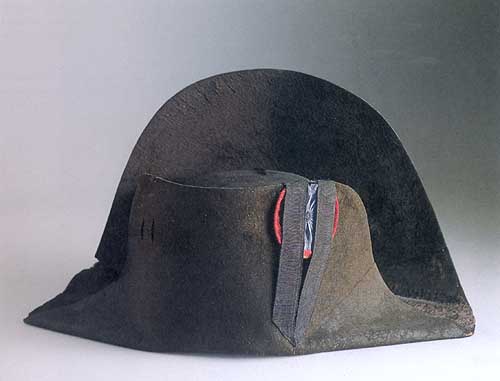This is one of my favourite images of Napoleon. Here is a man who is a thinker and a sage, as far from the stereotypical image of the mindless conqueror as one can get. Napoleon had a passion for intellectual inquiry that overrode military necessities. On the eve of the Battle of Austerlitz in December 1805 he discussed literature with his officers. After invading Russia and capturing Lithuania without a shot he asked to see the astronomer Sniadecki - there had been a famous comet in the skies above Europe in 1812. While on board ship on the voyage to Egypt in 1798 he had discussed God and religion with his companions. Such was the mind that fascinated Goethe and almost everyone who ever met Napoleon. Even his enemies were affected by his charm and easy conversation. He treated people the same way whether they were kings or peasants - he was approachable to all as Bourgogne and Coignet repeatedly attest. When British sailors took him to England and later to Saint Helena they were as fascinated by him as anyone. Frederick Maitland's account of his time on the Billy Ruffian or Bellerophon make this abundantly clear. The English Tars loved it when they put a play on for Napoleon and the one-time ruler of most of Europe deigned to listen and watch them for twenty minutes - repeatedly laughing at their antics, especially the men who were dressed as women. In 1920 H.G. Wells had written that Napoleon was a tyrant who never laughed. But then Wells as a great story-teller - he was certainly no historian. 





No comments:
Post a Comment